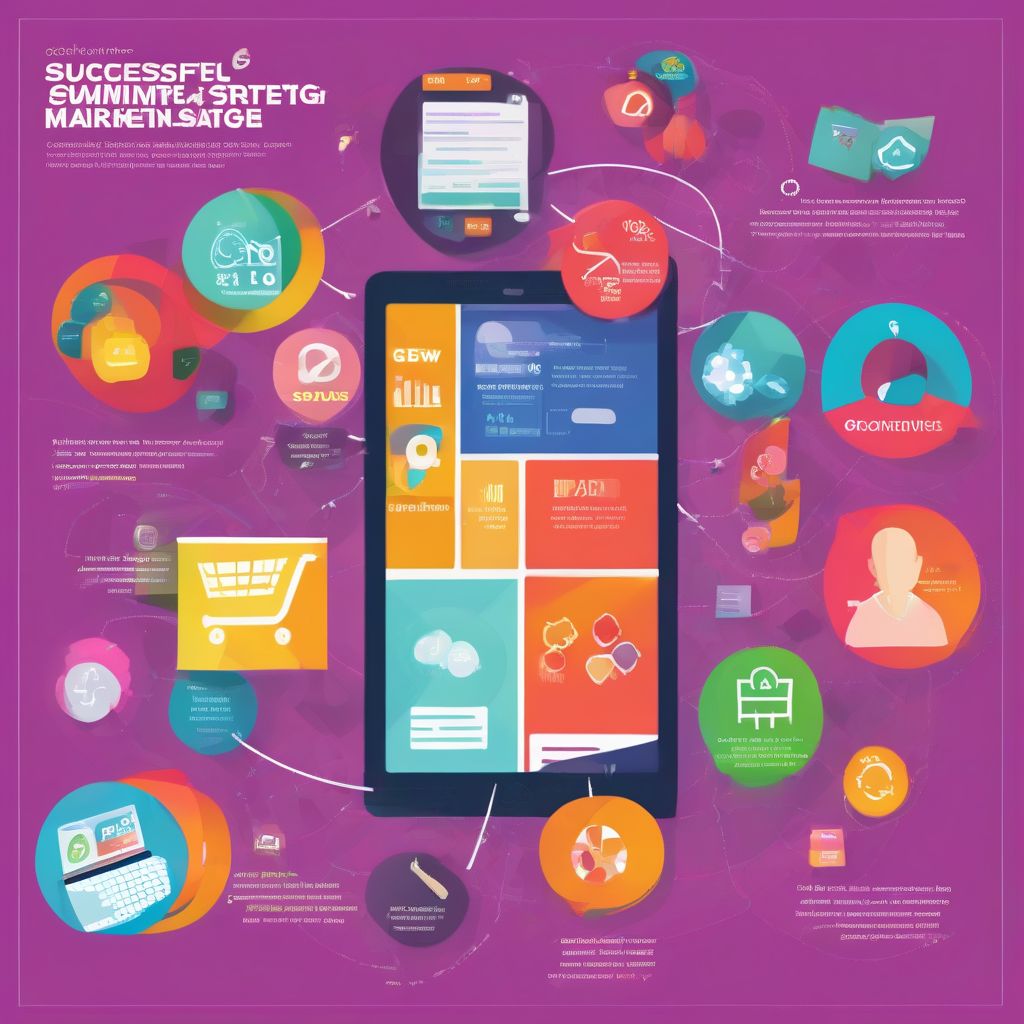Imagine this: you’ve poured your heart and soul into creating an amazing product. You launch your ecommerce store, excited to share it with the world… only to be met with crickets. Crickets are great in nature, not so much in online business. The missing ingredient? A powerful ecommerce marketing strategy.
Don’t worry, we’ve all been there. Building a thriving online store takes more than just great products—it demands a strategic approach to reach your target audience and convert them into loyal customers.
This comprehensive guide will equip you with the knowledge and tools to create and manage a high-performing ecommerce marketing strategy. We’ll explore proven tactics, real-world examples, and actionable steps to drive traffic, boost sales, and achieve sustainable growth for your online business.
Understanding Your Audience and Competition
Before diving into marketing strategies, it’s crucial to lay a solid foundation. Just like a chef needs to understand their ingredients, you need to understand your target audience and competitive landscape:
1. Defining Your Target Audience:
- Demographics: Age, gender, location, education, income level
- Psychographics: Interests, values, lifestyle, pain points, motivations
- Online Behavior: Preferred social media platforms, shopping habits, content consumption patterns
2. Analyzing Your Competition:
- Identify your top competitors: Who are the key players in your niche?
- Analyze their strengths and weaknesses: What are they doing well? Where can you differentiate yourself?
- Examine their marketing strategies: What channels are they using? What type of content are they creating?
By deeply understanding your ideal customer and your competition, you can tailor your marketing efforts for maximum impact.
Building Your Ecommerce Marketing Toolkit
Now that you have a clear understanding of your audience and competitors, it’s time to equip yourself with the right tools. Think of this as gathering the essential ingredients before you start cooking:
1. Website Optimization:
- User-friendly design: Easy navigation, clear product pages, mobile responsiveness
- SEO optimization: Keyword research, on-page optimization, technical SEO
- Fast loading speed: Optimize images, minimize redirects, leverage browser caching
2. Email Marketing:
- Email capture forms: Grow your subscriber list through website pop-ups, landing pages, and checkout offers.
- Automated email sequences: Welcome emails, abandoned cart reminders, post-purchase follow-ups
- Segmented email campaigns: Personalize your messaging based on customer behavior and preferences.
3. Social Media Marketing:
- Choose the right platforms: Focus on where your target audience hangs out (Instagram, Facebook, Pinterest, etc.)
- Create engaging content: Share high-quality images, videos, stories, and behind-the-scenes peeks.
- Run targeted ads: Reach a wider audience and drive traffic to your website.
4. Paid Advertising:
- Search engine advertising (SEM): Target specific keywords to display your ads on search engine results pages.
- Social media advertising: Promote your products or offers directly to your target audience on social media.
- Display advertising: Showcase visually appealing ads on relevant websites and platforms.
5. Content Marketing:
- Create valuable content: Blog posts, articles, infographics, videos that educate and entertain your audience.
- Keyword optimization: Target relevant keywords to improve your search engine visibility.
- Content promotion: Share your content on social media, email, and other channels.
 Ecommerce Marketing Strategy
Ecommerce Marketing Strategy
Crafting Your Ecommerce Marketing Strategy
With your toolkit in place, it’s time to build your ecommerce marketing strategy. Consider this the recipe you’ll follow to achieve your desired outcomes:
1. Setting Clear Goals:
- What do you want to achieve with your marketing efforts?
- Increase brand awareness? Drive traffic to your website? Boost sales?
- Set specific, measurable, achievable, relevant, and time-bound (SMART) goals.
2. Defining Your Budget:
- How much are you willing to invest in marketing?
- Allocate your budget across different channels based on your goals and target audience.
3. Choosing Your Marketing Channels:
- Which platforms will you use to reach your target audience?
- Prioritize channels based on your budget, resources, and audience demographics.
4. Creating a Content Calendar:
- Plan and schedule your content in advance to ensure consistency.
- Consider using a content calendar tool to streamline the process.
5. Tracking and Measuring Your Results:
- Use analytics tools to track your progress and measure the effectiveness of your campaigns.
- Analyze your data to identify areas for improvement and optimize your strategies over time.
Optimizing Your Ecommerce Marketing Strategy for Long-Term Success
Building a successful ecommerce marketing strategy is an ongoing journey, not a destination. Continuously analyze your data, experiment with new tactics, and adapt your strategies based on your findings. Here are some key optimization tips:
1. A/B Testing:
- Test different versions of your website, ads, and email campaigns to see what resonates best with your audience.
2. Personalization:
- Use customer data to deliver personalized experiences across all touchpoints.
3. Customer Relationship Management (CRM):
- Leverage a CRM system to manage customer interactions, track leads, and nurture relationships.
4. Customer Feedback:
- Actively seek customer feedback through surveys, reviews, and social media monitoring.
5. Stay Updated:
- The digital marketing landscape is constantly evolving. Stay up-to-date on the latest trends, technologies, and best practices.
Conclusion
Creating and managing an effective ecommerce marketing strategy is crucial for the success of any online business. By understanding your audience, leveraging the right tools, and continuously optimizing your approach, you can drive traffic, boost sales, and achieve sustainable growth.
Remember, your marketing strategy should be as unique as your brand. Embrace experimentation, learn from your experiences, and never stop striving to connect with your customers in meaningful ways.
Now that you’re equipped with the knowledge to build a winning strategy, it’s time to put these insights into action and watch your ecommerce business thrive.
[amazon bestseller=”ecommerce marketing”]
